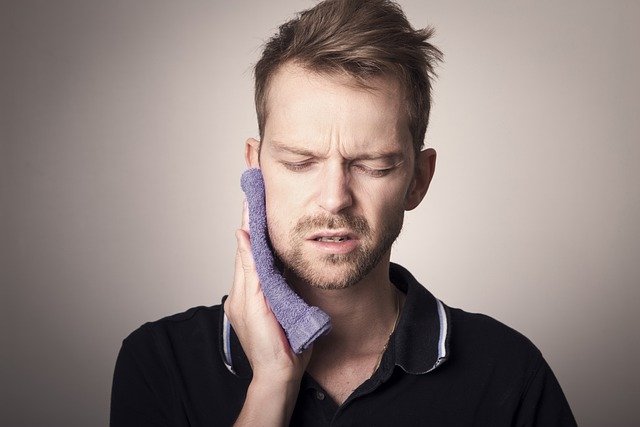You might not know much about TMJ, but you use them a lot each time you chew, talk, or swallow. TMJ is temporomandibular joints that connect your jawbone to your skull.
When something goes wrong with your jaw muscles and jaw joints because of overuse, jaw injury, or inflammation due to arthritis, TMJ disorders occur.
If you have TMJ pain or disorders, you may have to undergo TMJ pain treatment. Your doctor will work with you to reduce your pain and improve the way your jaw functions.
In this article, we’ll discuss the things you should stop doing if you have TMJ pain. By avoiding the following activities, you can reduce the stress on your temporomandibular joint and speed up the recovery process:
1. Avoid Clenching Your Teeth
Clenching your teeth, also called bruxism,may occur while sleeping or during the day. When you have TMJ, bruxism places excessive stress on your jaw muscles.
Teeth clenching is often a result of stress. So try to manage your stress levels. Your dentist may also prescribe a mouth guard to be worn while you sleep to prevent clenching of teeth.
2. Avoid Eating Hard Foods
Hard foods are tough on the jaw. If you have TMJ pain, eating hard foods such as apples and bagels puts excessive stress on your jaw. It prevents the joints from getting the rest required for proper healing.
3. Avoid Chewing Gum
The activity of chewing gum makes excessive use of your TMJ. By avoiding chewing gum, you are limiting the use of the jaw joints and jaw muscles, which reduces the pressure on them and gives them a chance to rest. Getting your sore muscles and joints to rest is important to get TMJ symptoms in control.
4. Avoid Chewing Only on One Side
Many of us chew only on one side of the mouth. This can put stresson the temporomandibular joint and the muscles, leading to joint dysfunction and TMJ pain.
Be conscious of your chewing habits. Ensure that you chew on both sides of your mouth; if you are chewing on only one side because you have dental problems on the other side of your mouth, see your dentist and get your dental problems fixed.
5. Avoid Resting Your Chin in Your Hands
Many people have the habit of resting their jaw in their hands while watching TV, studying, or browsing social media. This position might give you comfort, but it can put pressure on the jaw muscles and the joints, pushing the disc out of place, thereby causing problems with the way your jaw opens and closes. Avoid resting your chin in your hands and give your joints time to heal in the right place.

6. Avoid Using Your Teeth as Tools
At times, your teeth may seem like perfect tools for opening or cutting things. But using them as tools can damage them or even aggravate your TMJ symptoms. Never use your teeth for:
- Opening envelopes, bottles, or plastic packages
- Chewing objects such as pencils, toothpicks, or pen caps
- Holding objects when your hands are full
7. Avoid Smoking
Smoking not only significantly increases your risk of oral cancer, but it also increases your risk of TMJ. Things you should do to quit smoking:
- Take up a new hobby
- Exercise regularly
- Reduce stress levels by meditating or taking deep breaths
- Reduce your alcohol or caffeine consumption
- Drink plenty of water for nicotine detox
8. Avoid Slouching
The function of your jaw is closely related to your body posture. When your posture is upright, and your head is above your cervical spine, your jaw operates the best. When you slouch, it changes the way your jaw muscles work and how your jaw opens and closes. Your physical therapist may work with you to correct your posture by prescribing various types of exercise.
9. Avoid Postponing Getting Treatment
If you suspect TMJ, don’t wait to get treated. TMJ is often non-progressive and hence has a good rate of recovery with conservative treatments. Seek your doctor or dentist’s help for accurate diagnosis and treatment. You may also consult a physical therapist who may prescribe exercises and strategies to treat your symptoms.
Author Bio:
Shen Chao works at Dr. Joshua Hong’s Smile Clinic in Goodyear, AZ, where he has seen the unmistakable positive impact of dental implants on a person’s smile and self-confidence. If you’d like to know how you can improve your smile or are considering a dental procedure, email Shen Chao at contact[at]joshuahongdds.com.
